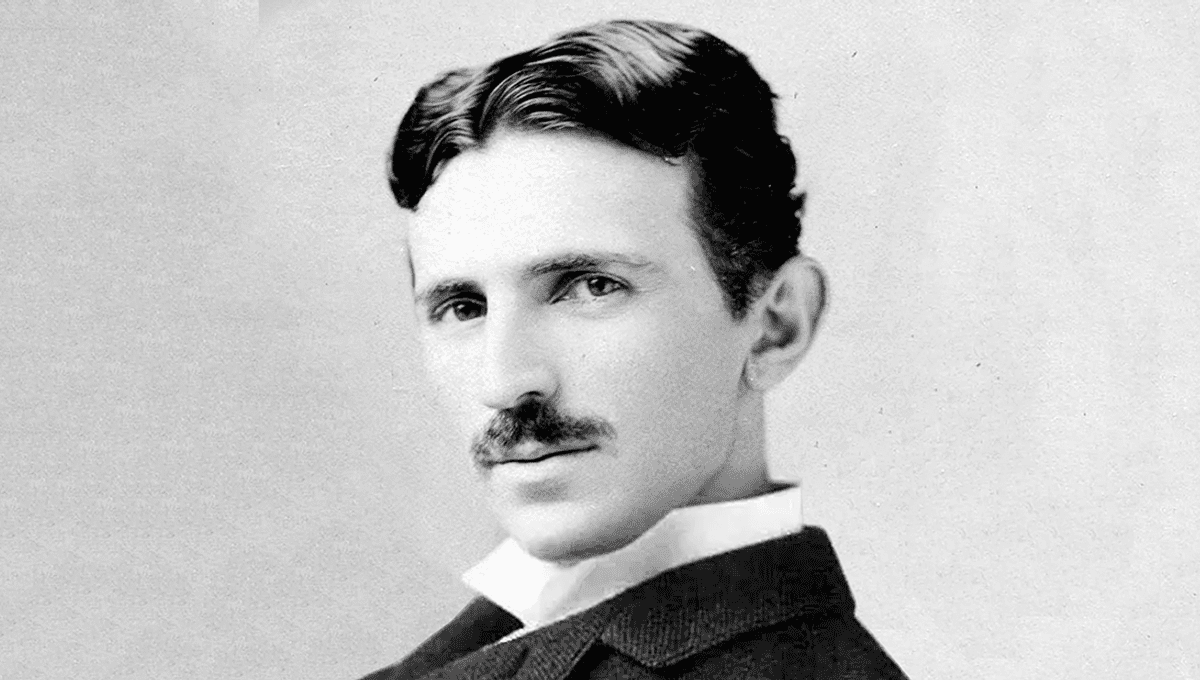
Nikola Tesla, famed for his work on alternating current, was one hell of an inventor, mechanical engineer and physicist. His inventions have been found to work better than expected even 100 years after he noted them down. However, nobody can be right 100 percent of the time, and Nikola Tesla had his fair share of being wrong – often massively so.
Tesla disagreed with Einstein
Tesla was not a fan of relativity, describing it as “a beggar wrapped in purple whom ignorant people take for a king”.
“I hold that space cannot be curved, for the simple reason that it can have no properties. It might as well be said that God has properties. He has not, but only attributes and these are of our own making. Of properties we can only speak when dealing with matter filling the space,” he elaborated.
“To say that in the presence of large bodies space becomes curved is equivalent to stating that something can act upon nothing. I, for one, refuse to subscribe to such a view.”
Of course, he was wrong, and observably so. For instance, galaxies and other large objects in space can warp space-time in a way we can see using telescopes, with background objects sometimes becoming magnified in what’s known as “gravitational lensing.”
Tesla thought he had measured faster than light travel
One reason why he was so confident that Einstein was wrong was because he believed he had measured faster-than-light travel, a cosmic ray from Antares, the brightest star in the Scorpio constellation, which he thought was moving at speeds 50 times faster than the speed limit of the universe.
He was in love with a pigeon
Ok, this isn’t exactly him being “wrong” in the “correct or not” sense, but it seems worth a mention. Tesla had a fairly strange final few years, including falling for a pigeon that used to visit him regularly. “I loved that pigeon as a man loves a woman,” he reportedly said of the bird, “and she loved me. As long as I had her, there was a purpose to my life.”
He didn’t believe in electrons
This is a weird one given his work on electricity (which is the flow of electrons through a conductor), but Tesla did not believe in electrons, thinking atoms were the smallest building blocks of the universe, arguing that if they existed they would only do so in a perfect vacuum. He believed in the 19th century view that the “ether” or “aether” transmitted electrical currents.
He thought the atom could not be split
Of course, not believing in electrons led him to the belief that atoms could not be split.
“The idea of atomic energy is illusionary, but it has taken so powerful a hold on the minds that, although I have preached against it for 25 years, there still are some who believe it to be realizable,” he said of the topic.
“I have disintegrated atoms in my experiments with a high potential vacuum tube I brought out in 1896, which I consider one of my best inventions. I have operated it with pressures ranging from 4,000,000 to 18,000,000 volts. More recently I have designed an apparatus for 50,000,000 volts which should produce many results of great scientific importance.”
“But as to atomic energy, my experimental observations have shown that the process of disintegration is not accompanied by a liberation of such energy as might be expected from the present theories.”
The atom was first split in 1932.
Source Link: The Many Things That Nikola Tesla Got Very, Very Wrong